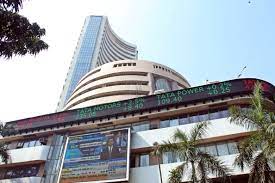Indian stock exchanges
19 October, 2021
by MMI Team
There are many stock exchanges in India, but only two main ones on which most of the stock trading occurs – BSE (previously Bombay Stock Exchange) – oldest stock exchange in Asia, dating back to the 1850s, now a listed company National Stock Exchange – NSE was established in 1992 to provide a modern, fully
- Published in Economy & Markets
Hidden risks and opportunities in India
15 August, 2021
by MMI Editor
The Marsh McLennan group released a report ‘The Elephants in the Room: Hidden Risks and Opportunities in India‘ in July 2021. It’s a compendium of articles that represent key economic and social issues which organisations in India have to contend with. India recently regained the title of being the fastest growing major economy after a
- Published in Economy & Markets
Economic agenda to turn India
15 July, 2021
by Dishant Savla
McKinsey released a report ‘India’s turning point: An economic agenda to spur jobs and growth’ in August 2020. This is a summary. India’s turning point A reform agenda can be implemented in the next 12 to 18 months to pave the way for economic growth in the coming decade. With 90 million more workers in
- Published in Economy & Markets
Signals in equity trading
13 July, 2021
by Dishant Savla
Trading volume and dispersion of signals Vidhani (2020) explains about the relation between trading volume and dispersion of signals. He speaks about the disagreement between the investors in relation to the share price and regarding decisions of buying and selling. The value of the stock is compared to the current stock price. Trade is initiated
- Published in Economy & Markets
Securities market surveillance
12 July, 2021
by Dishant Savla
Rules vs. discretion in market surveillance:evidence from India Aggarwal, Bhatia, Zaveri in their research paper talks about the new surveillance measure which is Graded Surveillance Measure (GSM). The reason behind introducing the measure was to restrict the trading activity of the securities whose share prices are not commensurate with the health of the firm. There
- Published in Economy & Markets
Managing interest rates
24 June, 2021
by vidhi agarwal
This post summarises some presentations and papers on managing interest rates in India. ‘Who Moved my Interest Rates’- Dr. Duvvuri Subbarao https://www.cfainstitute.org/research/multimedia/2016/who-moved-my-interest-rate Dr. Duvvuri Subbarao explained the challenges and dilemmas he faced as the RBI governor from 2008-2013. This was an extremely rough period for central banks across the world since the financial crisis erupted
- Published in Economy & Markets
India’s GDP measurements
30 July, 2020
by Janhavi Poojary
This post summarises some presentations and papers on India’s GDP measurements. India’s GDP mis-estimation: Likelihood, magnitudes, mechanisms, and implications This June 2019 paper by Arvind Subramaniam shows that the change in the way GDP is measured in 2012 has led to a significant overestimation of growth. The paper compiles evidence based on disaggregated data from
- Published in Economy & Markets
Intro to Modern Monetary Theory
06 June, 2014
by MMI Editor
Being a professor in risk management, Professor Frank Ashe had to explain the biggest risk event in recent history – the global financial crisis. He went back to basics to understand the genesis of the credit bubble, in the process discovering Modern Monetary Theory and how government deficits are not as bad as people think.
- Published in Economy & Markets
Role of credit rating agencies
15 April, 2014
by MMI Editor
Credit rating agencies have been criticized for their role in the 2007 sub-prime crisis, which led to the global financial crisis, but it wasn’t until a recent lawsuit exposed their internal emails that it became clear to what extent they were responsible. While the global financial crisis can’t be blamed on any one in particular,
- Published in Business Issues, Economy & Markets



